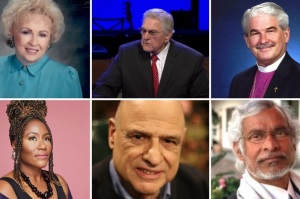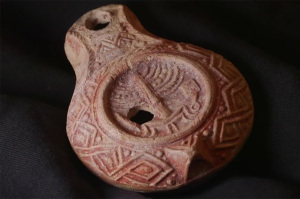Should a Baker Be Required to Bake a Westboro Baptist 'God Hates Fags' Cake If It's Against Their Religious Beliefs?
Should government be able to force some business owners to either violate their conscience or shut down if they refuse service for a same-sex wedding? Joe La Rue, legal counsel for Alliance Defending Freedom, suggests the issue can be put in a clearer light by asking this question: should a baker be required to bake a cake for Westboro Baptist Church with icing that reads, "God Hates Fags," if it violates their religious conscience to do so?
A Colorado baker, Jack Phillips, was recently ordered by a state judge to stop declining to make cakes for same-sex weddings, even though the baker believes doing so would be in violation of their religious beliefs. Similar cases around the country have involved wedding photographers and florists.
He does not object to serving gays, Phillips added, but to serving a gay wedding, because he views that as a violation of his religious beliefs.
"If gays come in and want to order birthday cakes or any cakes for any occasion, graduations, or whatever, I have no prejudice against that whatsoever," he said. "It's just the wedding cake, not the people, not their lifestyle."
La Rue's analogy goes like this: Imagine that you are a baker. In your hometown there is the funeral of a soldier who lost their life in defense of the nation. As they often do, Westboro Baptist Church arrives to picket the funeral. In celebration of their protest, they go to your bakery and ask you to make a cake with the words "God Hates Fags" written on it with icing. Would you like the option of being able to decline them service? Should the government have the ability to force you to make that cake?
"If I were that baker," La Rue said in a Friday interview with The Christian Post, "I would want to be able to refuse to bake that cake because that actually violates my religious belief about God. I don't think that God hates people that are disobedient to Him. I think that's why Jesus died for us, because God loves people who disobey Him and God wants people to be saved. So I wouldn't want to bake that cake. And, frankly, it would offend my dignity to force me to bake that cake."
In this controversy, there are two issues being debated:
1) Should Christian-owned businesses be willing to provide services for a gay wedding? Christian columnists Kirsten Powers and Jonathan Merritt, for instance, recently argued they should while Russell Moore, president of the Ethics & Religious Liberty Commission of the Southern Baptist Convention, argued they should not.
2) Should Christians who refuse to provide a service at gay weddings be sanctioned by the government? A "yes" answer to number one does not require a "yes" answer to number two. One can believe an action is wrong without believing the action should be illegal.
The legal issue, then, is not (1), whether Christians should provide their talents for a gay wedding, but (2), whether Christians who believe they should not provide those services should be punished by the government.
Laws that protect religious freedom are not just icing on the cake, La Rue believes; they are important because they protect an individual's right to live according to their beliefs. In other words, freedom of conscience is the right for a Christian wedding cake baker to live according to what they believe, not what Powers and Merritt believe.
Without religious freedom protections, La Rue says, Muslim women could be forced to remove their head scarves, or Christians could be forced to remove a cross. Religious freedom rights protect "our right to live and work consistently with our faith. And that's why [they are] needed."
In a recent speech at the National Prayer Breakfast, President Barack Obama put it this way: "We therefore believe in the inherent dignity of every human being – dignity that no earthly power can take away. And central to that dignity is freedom of religion – the right of every person to practice their faith how they choose, to change their faith if they choose, or to practice no faith at all, and to do this free from persecution and fear."
ADF is a Christian legal ministry that advocates for religious freedom.





























